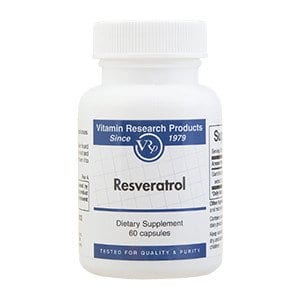 It’s not often that a “wonder drug” appears, claiming to cure a range of diseases and complications from obesity, diabetes, cancer, and heart disease. Such claims would usually (and understandably) be met with widespread skepticism and would be the subject of much criticism. The desire for “quick fix” drugs has always existed but it seems that health professionals are finally making headway in convincing patients that living a healthy lifestyle is a practice that involves a good diet, regular exercise, and frequent health check-ups.
It’s not often that a “wonder drug” appears, claiming to cure a range of diseases and complications from obesity, diabetes, cancer, and heart disease. Such claims would usually (and understandably) be met with widespread skepticism and would be the subject of much criticism. The desire for “quick fix” drugs has always existed but it seems that health professionals are finally making headway in convincing patients that living a healthy lifestyle is a practice that involves a good diet, regular exercise, and frequent health check-ups.
Yet there is just such a drug — one that appears to treat a host of the most serious diseases facing us today — that may be available within three years.
As if treating cancer and diabetes wasn’t enough, the drug may even allow individuals to receive the benefits of a healthy diet and regular exercise without sacrificing the pizza and cookies or spending a minute on a treadmill.
This news comes from research regarding a family of drugs based on a “miracle ingredient” called reservatrol, the compound found in red wine that lowers the risk of developing heart disease and cancer.
Reservatrol, and by extension these new drugs, would work by activating the SIRT1 gene, credited as being the key to energy, health, and longevity. The drugs would give an individual the health benefits of about 8,000 bottles of red wine.
In one experiment, mice were given one of the drugs, called SRT1720. The mice were fat high-fat diets yet gained no weight and were shown to be at low risk for developing diabetes in addition to having increased energy levels.
The health research division of the U.S. government has conducted an additional study confirming the findings.
In the newer study, the drug was given to middle-aged mice, which were immune to many of the complications caused by poor diet. The mice that ate fatty foods lived nearly as long as the mice who were fed more healthy diets. When given in high doses, the mice with poor diets saw their lives extended by as much as 44%. The drug also prevented fat from building up inside their livers and protected them against diabetes.
SRT1720 works by activating the sirtuin 1, or SIRT1, gene. The gene is believed to play a role in regulating life span; the gene codes for a group of proteins called sirtuins and it is a primary controller in the activity of cellular mitochondria, or the powerhouses of each individual cell. Stimulating mitochondria into being more active is advantageous for overweight people and those with metabolic disease such as Type 2 diabetes because the mitochondria burn more energy instead of storing it as fat.
The miracle drugs are currently in development at Sirtris, a biotechnology firm that was bought out by GlaxoSmithKline three years ago. While GSK is no longer pursuing the development of SIRT1720, they are working on three new drugs that may be even more beneficial. The drugs are being tested on humans and the first could be available to the public within three years.
According to Rafael de Cabo with the National Institutes of Health in Baltimore, these drugs are most promising in their ability to keep individuals healthy throughout old age. “To me, the most tantalizing thing about the findings are the health benefits. I don’t care much about living five years longer as long as I live what I am supposed to live completely healthy.”
Initially, the drugs will likely be used to treat severely overweight people.